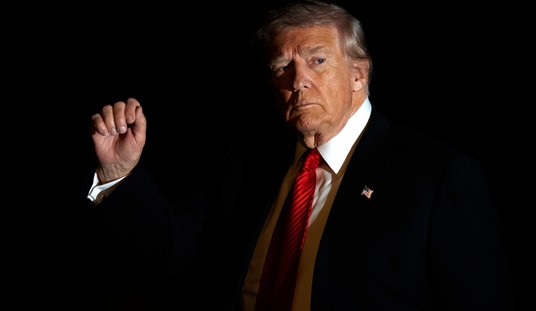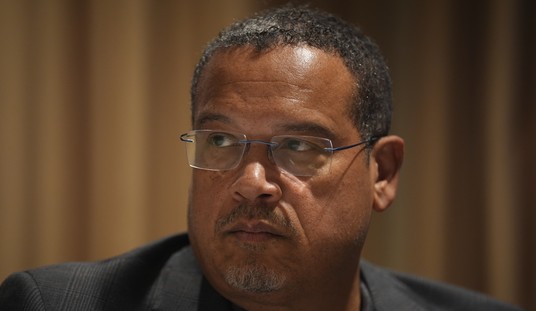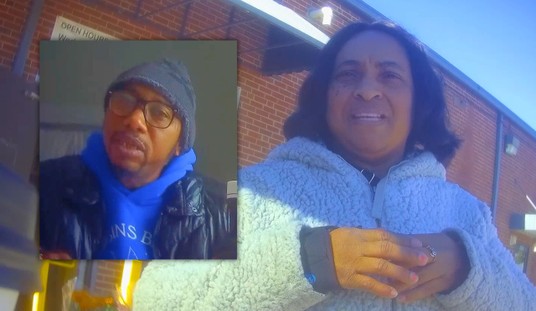James Rosen has moved on to other stories than the North Korea policy issue that earned him a Department of Justice accusation of being a co-conspirator to espionage and a flight risk. Rosen’s not the DoJ’s headache any longer, but he might be the latest headache for the State Department. Two officials at Foggy Bottom denied knowing anything about corrupted investigations at State during depositions in a personnel lawsuit, but documents uncovered by Rosen show both had participated in a meeting where the issue was raised:
Two top officials at the State Department’s Diplomatic Security Service (DS) — the federal law enforcement agency that protects American diplomats and investigates allegations of criminal misconduct by State Department employees — gave sworn testimony earlier this year that appears to be evasive at best, and untrue at worst, according to evidence obtained by Fox News.
The officials are Scott Bultrowicz, who until Feb. 1 served as director of DS, and Tracy H. Mahaffey, who remains the executive director of DS. In videotaped depositions conducted this past February, Bultrowicz claimed not to know about any claims by a federal agency that DS officials have failed to follow proper procedures; and Mahaffey claimed not to know about any pending investigations into DS.
Yet Fox News has obtained meeting notes, draft reports and other evidence that suggest both officials were aware, at the time they were deposed, of a pending investigation into DS and its operations by the State Department’s Office of Inspector General (OIG). What’s more, both officials had been apprised of the OIG’s preliminary finding that DS did indeed fail to follow proper procedures in at least eight cases, and possibly more, because of “undue influence” and “pressure” brought to bear by senior State Department officials to halt internal investigations.
The evidence indicates the two officials were presented with those conclusions approximately 60 days before they testified in their depositions.
The odd part of this alleged perjury is that it seems rather superfluous to the case to begin with. The issue with DS agent Richard Higbie was that he was demoted (or at least that State attempted to demote him) after refusing to accept overseas assignments at the investigative agency. Higbie claims that the demotion was a retaliation for his refusal, which was necessitated by his daughter’s serious illness; State disputes that, saying the personnel actions followed proper State procedure.
That left the door wide open to questions like these in February of this year:
During the proceedings, Higbie’s lawyer, Cary Schulman of Dallas, engaged in the following colloquy with Bultrowicz:
SCHULMAN: Are you aware of any governmental agency, the United States Congress, or any other governmental investigative body that has similar criticisms of Diplomatic Security’s failure to have or follow through proper administrative policy or procedures?
BULTROWICZ: None that come to my mind right now.
Earlier, Schulman had engaged in a similar exchange with Mahaffey:
SCHULMAN: Are you aware of any investigations by any agency, federal government or otherwise, into Diplomatic Security, into whether they uniformly or properly administer their policies in connection with employees or the administration of diplomatic security?
MAHAFFEY: I’m not aware of any.
The questions didn’t pertain to the State Department DS scandal directly, and that scandal doesn’t have much to do with Higbie. He’s not claiming whistleblower status in that case. It may end up being germane enough to put Bultrowicz and Mahaffey in legal jeopardy, but that seems a stretch. For perjury to stick, it has to be a material falsehood that impacts the present case, not just an oversight or a fib on an unrelated point — and on top of that, the prosecution would have to prove intent. Given the disparate contexts between the two cases, that will be a tougher sell than usual for any perjury charge.
At the least, though, it shows that there seems to be a culture of opacity, at the very least, in this administration. For Rosen, that’s an extra added payoff against an administration that targeted him as a criminal for what has traditionally been known as reporting.
Note: Video at the link.








Join the conversation as a VIP Member